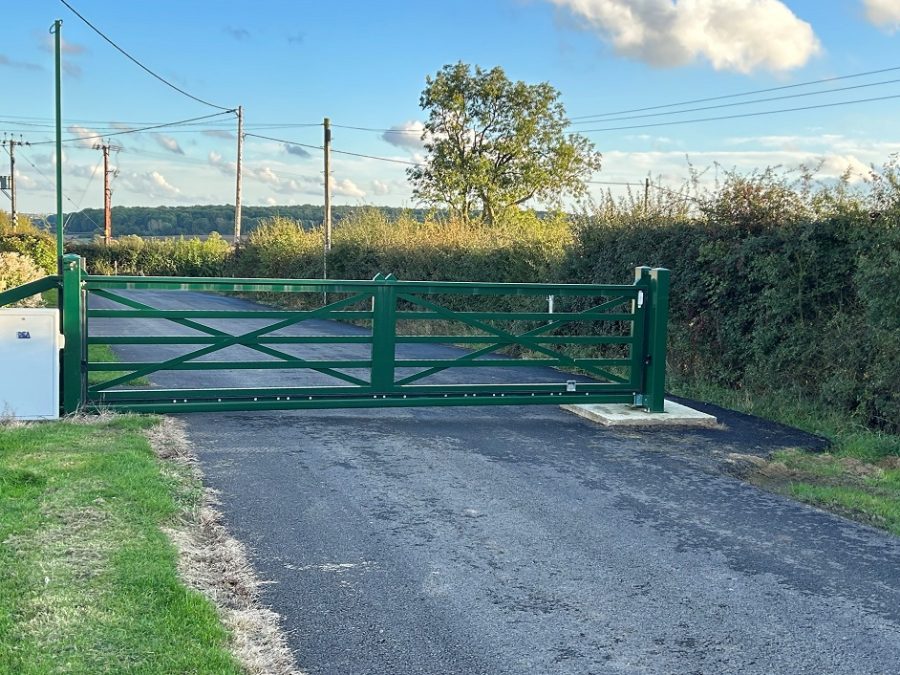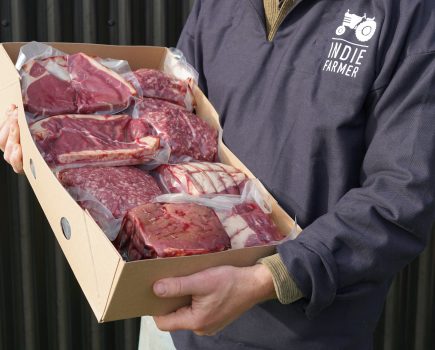Simple steps to help reduce risk of loss, theft, damage or injury can also help insurance premiums
With pressure on margins and continued volatility of input costs, twinned with shorter, darker days in mid-winter, the farming industry’s exposure to risk has never been higher, and farmers are being urged to take a proactive approach to farm security.
With latest rural crime figures suggesting that farmers are now not only facing the threat of opportunists, but also organised criminals targeting high value goods and equipment, measures need to be implemented to reduce risks and limit opportunities, according to agriculture insurance specialists, Acres Insurance Brokers.
“Farm security is sometimes treated with a relaxed approach, but even if only adding a further layer of deterrent, simple measures can have a huge impact, particularly for putting off the opportunist criminal looking for a quick gain,” said director Georgie Spencer.
“As an industry, we are open to a wide range of risks and threats, but there are some simple precautions we can take to help reduce the risk of losses and theft.”
Of course, the best form of defence is to stop any unwanted visitors at the farm gate. An open and inviting driveway up to unsecured farm buildings, workshops and machinery is an open invite to the opportunist thief.
Where possible, Ms Spencer advises installing security gates, barrier gates or sliding gates, ideally with number plate recognition and recording. However, if the determined criminal does get past the farm gate, the insurance specialists are reminding the industry of a number of measures that can be implemented.
“Consider the use of alarm systems as part of a series of defences to put off potential thefts or attacks,” she said.
“Measures inside buildings, for example tamper alarms on diesel tanks, or lockable cabinets for high value tools, plus CCTV and security cameras are an additional security and deterrent.”
Machinery and technology
High value equipment and machinery have always been a target for criminals, and latest crime figures show this to be a trend that continues to rise. Alarms, immobilisers and trackers can all play their part in reducing that threat.
“There are simple management practices that should always be adopted. For example, remove GPS receivers from vehicles and machinery,” said Ms Spencer.
“An even more simple one – don’t leave vehicles and machinery such as trucks and gators unlocked or leave keys in the ignition. It is obvious I know, but we see examples far too frequently,” she added.
Insurance implications
While the implementation of new security features and additional precautions will involve some level of investment, it will certainly bring peace of mind. And while installing additional measures may not directly link to reduced insurance premiums, it will have a benefit, according to Acres Insurance Brokers.
“Insurers will look more favourably at a willingness to deter criminals, and if higher sums are insured, and suitable theft measures are in place, premiums are unlikely to rise,” says Ms Spencer.
“On the flip side, if multiple claims for theft are made, the insurer will likely insist on security features being installed, so the farmer ends up with a higher premium anyway, and will still have to pay for the security measures,” she adds.
Although insurers may not give a direct discount straight away for implementation of security measures, they will help keep insurance premiums down in the long term.
“The less claims for theft you make, the more negotiating power we, as the broker, have with insurers, to keep premiums down. Nobody benefits from an insurance claim, and therefore avoiding them happening is in the interest of the farmer,” explained Ms Spencer.
Replacement costs
With the continued appreciation of farm equipment and machinery values, alongside increased costs of repair, it is important to consider sums insured, with an eye on replacement costs.
If faced with the loss or damage of machinery, vehicles or equipment by intruders, unless policies have been reviewed and sufficient replacement sums insured, farmers can face significant downtime and potentially catastrophic losses. The same applies with livestock.
“Ensure all stock is insured for reinstatement, whether for breeding stock, or for finished or sale value, and always ensure fields, fences, pens and gates are secured to deter theft,” said Ms Spencer.







